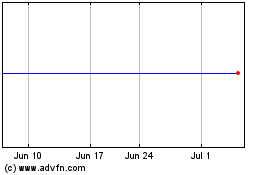Arizona's Pinal County Gains Health-Law Exchange Insurer
September 08 2016 - 1:40AM
Dow Jones News
Blue Cross Blue Shield of Arizona will offer plans on the
Affordable Care Act exchange in Arizona's Pinal County next year,
resolving a situation that drew a national spotlight because it
represented a major challenge to the mechanics of the health
law.
When Aetna Inc. announced last month that it would withdraw from
the exchange in Arizona, among other states, it left Pinal at risk
of becoming the first U.S. county without a single insurer selling
exchange plans. Aetna had been expected to sell exchange plans in
Pinal County, where approximately 10,000 people had signed up for
ACA plans.
That circumstance could present a significant problem because of
how the law works. The ACA mandates that most people acquire health
coverage, and offers subsidies to help lower-income consumers
purchase plans. To obtain the subsidies, though, people are
supposed to purchase their plans through ACA exchanges.
Blue Cross Blue Shield of Arizona Chief Executive Rich Boals
said in a statement that his company will be the sole exchange
insurer in 13 of Arizona's 15 counties in 2017. However, he said,
"regulators and policy makers must find a way to stabilize the
market and put long-term fixes in place. Meanwhile, BCBSAZ is
trying hard to balance the company's financial losses from the ACA
with the very real concerns of Arizonans."
The insurer's agreement represents a victory for federal and
state officials, who have been pushing to resolve the situation in
the weeks since it emerged. But the broader issue of thin offerings
in many states' exchanges, in the wake of withdrawals by major
insurers that suffered financial losses on the business, will
continue to challenge regulators.
Insurance officials in other states remain nervous about the
possibility that other counties might lose all their exchange
insurers if other companies decide in coming weeks to reduce their
footprints. "This is just too close to the margin," Wayne Goodwin,
North Carolina's insurance commissioner, said in an interview last
month. "Even if we do maintain one carrier for the exchange
offerings in North Carolina, that is too close." North Carolina is
expected to have just one insurer in most of its counties.
A study by the Kaiser Family Foundation suggests there could be
just one exchange insurer in 31% of counties in 2017, and there
might be only two in another 31%. States including Alabama, Alaska,
Missouri, Arizona, Florida, Mississippi, Oklahoma and Tennessee are
likely to go next year to having one insurer in all or most
counties, Kaiser's analysis found.
Blue Cross Blue Shield of Arizona in June had announced that it
would next year pull its exchange plans in two counties of Arizona,
Pinal and neighboring Maricopa, which is where Phoenix is located.
The insurer said at the time that it would keep selling exchange
plans in more-rural parts of the state, but it had to "strike a
balance between how we serve the market and the losses these plans
incurred." The insurer said then it lost $185 million on individual
ACA plans in two years.
Neighboring Maricopa County is also now expected to have just
one insurer, Cigna Corp., after Tenet Healthcare Corp.'s Phoenix
Health Plans recently announced that it will withdraw from the
exchange in the county. Phoenix Health Plans said in a statement
that it had decided to discontinue the exchange plans "based on the
economic challenges and underlying risks of the products." That
would represent a sharp drop-off for Maricopa, which has had a
large selection of exchange insurers.
Corrections & Amplifications: There are 15 counties in
Arizona. An earlier version of this article incorrectly stated that
there are 14. (Sept. 7, 2016)
Write to Anna Wilde Mathews at anna.mathews@wsj.com
(END) Dow Jones Newswires
September 08, 2016 01:25 ET (05:25 GMT)
Copyright (c) 2016 Dow Jones & Company, Inc.
Aetna (NYSE:AET)
Historical Stock Chart
From Mar 2024 to Apr 2024

Aetna (NYSE:AET)
Historical Stock Chart
From Apr 2023 to Apr 2024
